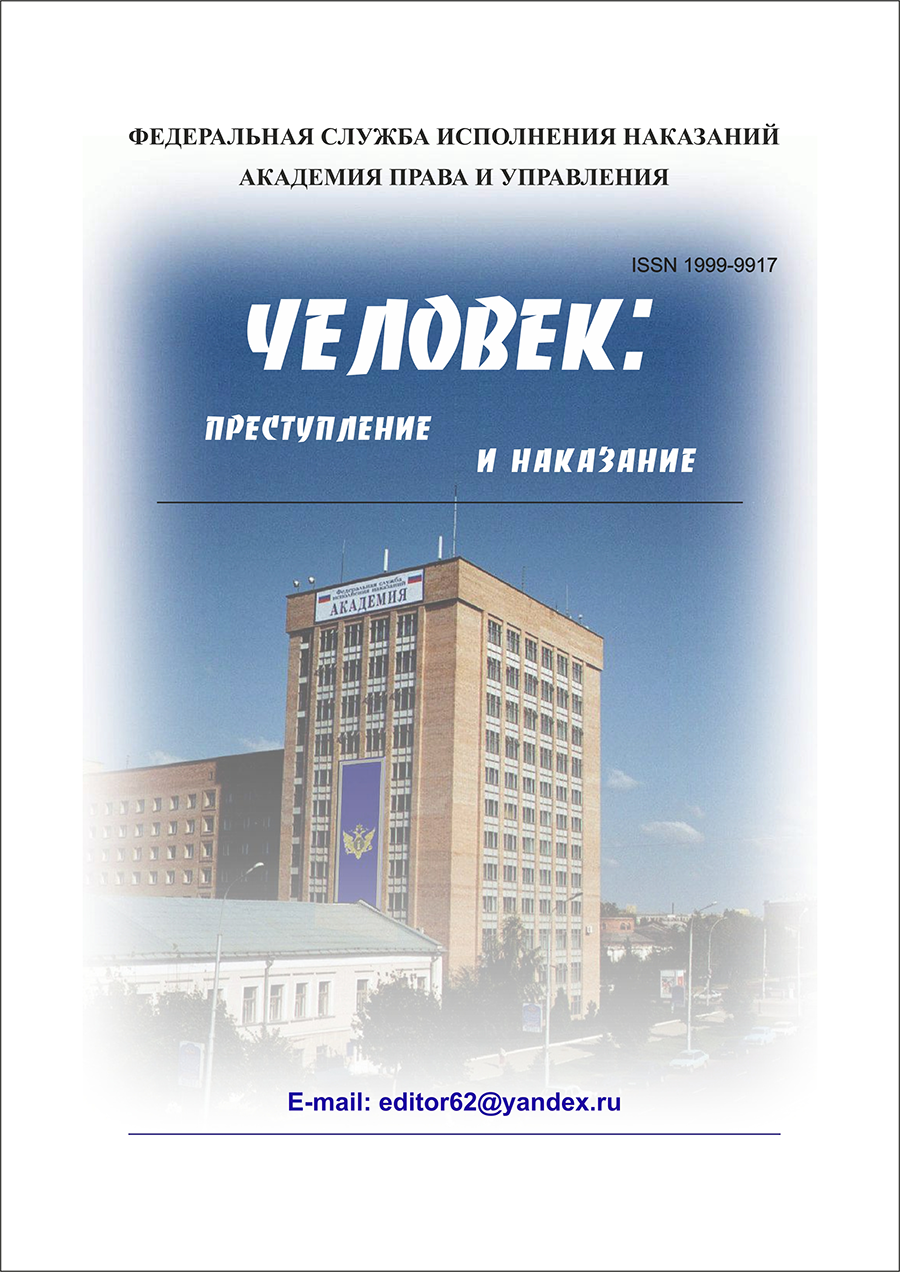Ufa, Russian Federation
UDC 343.91
The present theoretical generalization is carried out in the interests of a more prominent reflection of the purely author's understanding of complex and significant manifestations and connections of personality in society that generate criminal human behavior, and at the same time predetermine the presence in society of criminal and organizational protective mechanisms against socially dangerous acts. Criminal behavior of a person is considered from the point of view of assessing the peculiarities of the manifestation of his biological nature, which receives a characteristic individual certainty in society: positive, ambiguously stable or negative. Attention is drawn to the fact that the human ego, having a biological origin manifested in a specific physical individual, acquires different forms and character of external manifestation in society and sometimes "pushes" a particular subject to realize the guilty possibility of violating a criminal law or other legal prohibition when realizing the socially dangerous nature of the act or the criminal consequences of his behavior. The criminal law, reflecting the essence of responsibility for the commission of a crime, through the mechanism of punishment, sanctions and other measures of a criminal legal nature, performs the functions of influencing and actually applying norms both to an indefinite circle of persons - subjects of socio–legal reality, and to specific persons with signs of a subject of criminal responsibility. The author's theoretical position on these problems is also to indicate the inadmissibility of manifestations of eclecticism, one-sidedness or absolutization in assessing the significance of certain legal signs, characteristics and features of the political and legal matter of criminal liability both at the legislative level, in branch theory, and in justice procedures, including criminal enforcement activities. The criminal liability of a particular person is determined by his act, a criminological assessment of his personality, resulting from taking into account the totality of the circumstances of his existence.
criminal liability, person, personality, Ego, crime, criminal law protection, public danger, punishment, crime, criminogenic factors of the market, «thief in law»
1. Shishkov, S. 2015, ‘Lombrosianism: a failed scientific revolution?’, Science and life, iss. 2, viewed 15 June 2023, https://www.nkj.ru/archive/articles/25810.
2. Shvartsman, K. A. 1963, "Psychoanalysis" and moral issues, Znanie, Moscow.
3. Omelchenko, E. V. 2014, ‘The problem of egoism in the works of Z. Freud’, Journal of Practical Psychology and psychoanalysis, iss. 3, viewed 1 October 2014, http://psyjournal.ru/.
4. Ershova, R. V. & Omelchanko, E. V. 2015, ‘Egoism: innate or acquired?’, Bulletin of the RUDN, Series Psychology and pedagogy, iss. 3, viewed 6 June 2023, https://cyberleninka.ru/ article/n/egoizm-vrozhdennoe-ili-priobretennoe.









